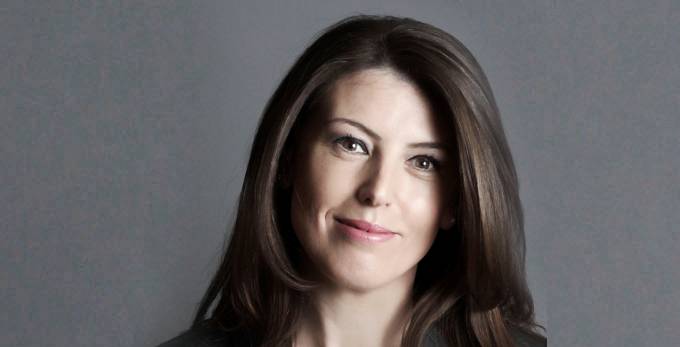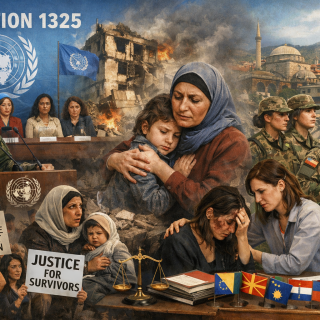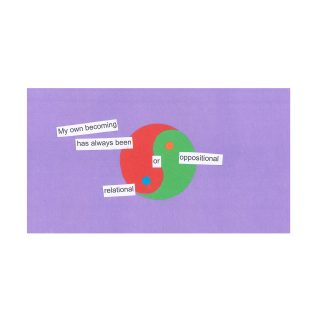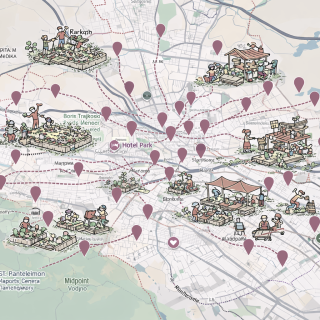Jo Berry daughter of a British politician who was killed in the 1984 IRA attack and the perpetrator Patrick Magee have struck up a friendship since 2000 when they decided to come to terms with their bitter past and engage in reconciliation.
Sitting at a small table of a tiny restaurant in Pristina, Jo Berry and Patrick Magee at first sight look like close relatives engaging in hurried and uneasy business.
They are preparing to speak in an event about the most difficult part of their lives, dealing with the bitter legacy of the North Ireland conflict, reconciliation, and healing.
In 1984, Jo Berry’s father Anthony Berry MP was among the five people killed in the IRA Brighton bombing during the Conservative Party Conference targeting Prime Minister Margaret Thatcher and her cabinet. The Irish Republican Army (IRA) was a paramilitary organization that fought for the establishment of a unified republic of Ireland. Less than a year later, the perpetrator Patrick Magee was arrested and sentenced to a lifetime in prison.
In the first days of preparing for the funeral of her father Anthony Berry, Jo Berry, then 27 years old, was wrapped in grief and thousands of question marks on the conflict and through this immersing herself in the post-conflict reconciliation.
She wanted to meet the IRA’s activist responsible for her father’s death. She had to wait 14 years.
“I didn’t have the how”
Magee was released as part of the Act of Forgiveness after the Good Friday Agreement or peace agreement in 1998 that ended most of the violence and ethno-nationalist conflict in Northern Ireland.
Then Jo Berry started her search for him. “I made a decision, but I didn’t have the how, how to find a way to meet Magee,” Berry explained.
Not long after, Patrick Magee got out of prison, he heard that somebody connected with Brighton wanted to see him. “I agreed because I already had the means to be involved in reconciliation,” Magee continued.
In November 2000, Jo Berry finally met Patrick Magee.“I was thinking… do I have an ‘enemy’ and thoughts of revenge, or do I find a way to bring a little contribution to peace – and even understand the person (IRA’s activist) who killed my father?” she added.
They had no one there to facilitate their meeting. “I was very scared. How would I feel? I didn’t want to be angry and to blame,” she said. “He was coming into a situation, not knowing how I would be or what I would say.”
When he arrived, she held her breath. “I looked him in his eyes. I wanted to look into his eyes and see him as if that’s all I wanted”.
Describing a rare moment when victims and perpetrators have the chance to meet each other, Magee said that it is hard for someone who committed crimes to hear about the anger and pain of the victims. “I will always carry the burden that I harmed other human beings,” he added.
Since then, Berry and Magee have been working with victims and former combatants from all sides to help her in her work with Building Bridges for Peace, a charity she founded to promote peace and better understand the roots of war, terrorism, and violence.
“Hear the perpetrator”
Magee, at the time of the attack 33 years old, was working in a construction site in Dublin in 1984, when there were hundreds of people going to jail for seeking an end to British rule in Northern Ireland.
“If you are a Republican involved in the struggle, that you’re used to the antipathy and misrepresentation and people seeing you as some sort of demon, and I was getting none of that,” he said.
Being part of an organization and involved in a political struggle, he said, set him apart from the normal lens of prisoners and the impact of imprisonment on them. “We Republicans felt that prison was another front in our struggle. That was a unifying factor. And it gives you strength.”
As an active member of the IRA, Magees said that he didn’t have plans to kill. “ In fact, there wasn’t really much thinking; efficient thinking. A lot of it was reactionary, in the sense of the word, meaning reacting to circumstances, you have little control over the overwhelming need to defend,” he explained.
Speaking about a similar recipe for reconciliation in Kosovo Berrys said that in a situation where the past can’t be changed, people must try to lay down the burden and “come to terms with the bitter past.”
“I understand that people still don’t have a chance to seize the opportunity for reconciliation. But I think this (reconciliation) helps people as they heal from the destructive legacies”.
Tackling trauma and pain, Berrys said that “there is something positive that would also come out of the trauma.”
“I needed to go beyond, and if I hate Patrick, then I’ve lost twice: I’ve lost my dad and theme that can have a happy life because I’m filled with hate and bitterness. I wanted to end the cycle of violence and revenge in me”.
Berry said that she felt disarmed by Magee’s empathy.
“He started to see my dad as a human being and said I am guilty of demonizing your dad,” she said.
“I didn’t see him as a human being when I planted that (bomb),” Magee added.
When Magee came out of prison, he said he was totally committed to the peace process.
“You have to create a space where you can do that, where you feel safe to articulate your perspective so that the others are not threatened by your perspective”.
Magee said that the trained professional soldiers are designed to make them not think about what they’re doing, but rather to just act to order.
“It is always possible that they are not seeing human beings there or they are just a means to an end”.
“Every time we demonize the other, we are dealing with the onset of this individual’s life, or death. We all suffer as part of coming out of conflict,” Berry said.
For Magee engaging in reconciliation with Berry helped him to restore some humanity, something that “was lost” when the bomb went off. “So to me, it’s part of my healing.”
More than 24 years after the war, Berry sees that there is “an urgent need “for reconciliation, this “runs deep in Kosovo.”
Magee said that in all the conflicts armed forces “try to literally dehumanize the people they are in conflict with in order to fight them,” he said.
“For me, it’s about recognizing the amount of trauma and pain that’s there and acknowledging it”.
She said that hate can delay further recovery.
“It may feel better in the short term, but it delays our healing and need for justice. Revenge keeps us locked in the past.
Berry explains that a victim meeting perpetrators is something she would never recommend to victims.
“We all have our own way of recovery, “she said.
Serbeze Haxhiaj is an investigative journalist and news editor based in Pristina, Kosovo, who focuses on corruption, human rights, security issues, religious extremism, terrorism and war crimes. She is currently an editor at Radio Television of Kosovo and a journalist at the Balkan Investigative Reporting Network (BIRN).




